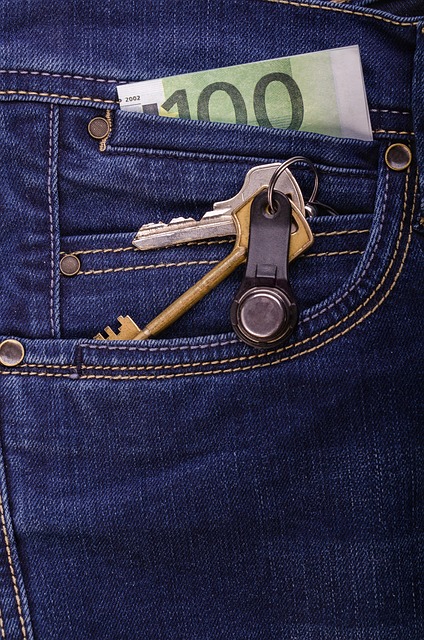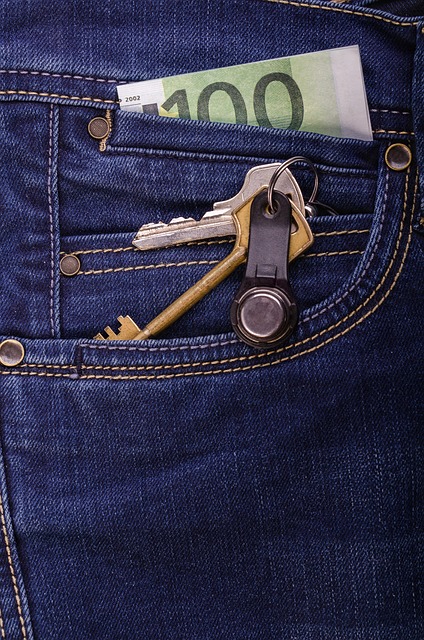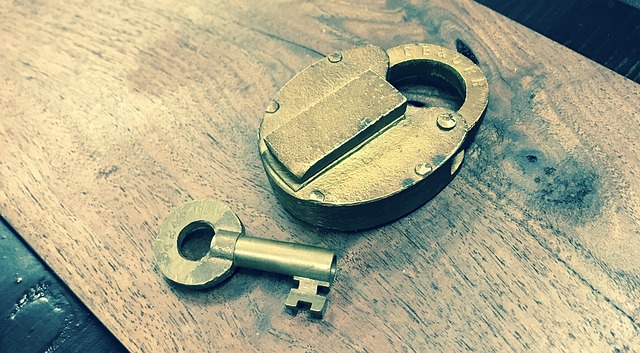Unlocking the Secrets of Crypto Wallets: The Ultimate Guide to Storing Your Digital Wealth
Author: Jameson Richman Expert
Published On: 2025-01-21
Prepared by Jameson Richman and our team of experts with over a decade of experience in cryptocurrency and digital asset analysis. Learn more about us.
In the fast-evolving world of cryptocurrency, one of the most crucial aspects every investor must tackle is how to securely store their digital assets. With the increasing interest in cryptocurrencies, many enthusiasts are often left wondering: what exactly is a crypto wallet, and how does one go about choosing the best wallet for their needs? In this comprehensive guide, we will dive into everything you need to know about crypto wallets, explore various types of wallets, and provide you with actionable tips to keep your digital wealth safe. By the end of this article, you'll be empowered to make an informed decision about your crypto storage solutions.

Understanding Crypto Wallets: What Are They?
At its core, a crypto wallet is a digital tool that allows users to store, send, and receive cryptocurrencies. Unlike a traditional wallet that holds physical cash, a crypto wallet doesn't store your cryptocurrency directly. Instead, it holds your public and private keys—essentially the credentials required to access your digital assets on a blockchain.
When you send or receive cryptocurrencies, you're interacting with the blockchain, which records all transactions. Your wallet holds the necessary keys that allow you to prove ownership of your coins and facilitates transactions on your behalf.
The Different Types of Crypto Wallets
Understanding the various types of crypto wallets is fundamental for anyone looking to invest or trade in cryptocurrencies. Each type has its own advantages and disadvantages, so let’s explore the most common options available.
1. Hardware Wallets
Hardware wallets are physical devices specifically designed for storing cryptocurrencies securely. They are often considered one of the safest options for crypto storage because they are immune to online hacks. With a hardware wallet, your private keys are stored offline, usually on a USB device.
Some popular hardware wallets include:
- Ledger Nano X
- Trezor Model T
- SafePal S1
2. Software Wallets
Software wallets, or software applications, allow users to interact with the blockchain through their desktop or mobile devices. They are generally more convenient than hardware wallets but are also more vulnerable to online threats.
Software wallets can be divided into two categories:
- Desktop Wallets: These are downloaded and installed on your computer. Examples include Electrum and Exodus.
- Mobile Wallets: These apps run on mobile devices for easy access and quick transactions. Popular options include Trust Wallet and Coinomi.
3. Web Wallets
Web wallets are hosted online by third-party services, making them very convenient but also more exposed to security risks. If you lose access to your web wallet account or if the service is hacked, you risk losing your funds.
Examples of web wallets include:
- Coinbase
- Binance
- Kraken
4. Paper Wallets
A paper wallet is the most basic form of storing cryptocurrencies. It involves printing your private and public keys on paper and storing them somewhere safe. While this method is immune to online attacks, it’s highly susceptible to physical damage or loss.
Choosing the Right Wallet for You
Your choice of a crypto wallet should be based on your specific needs, trading habits, and security requirements. Here are some critical factors to consider:
- Security: Select a wallet that offers robust security features, including two-factor authentication (2FA), encryption, and backup capabilities.
- Accessibility: If you trade frequently, a software or mobile wallet may be more convenient. For long-term storage, a hardware wallet is preferable.
- Supported Cryptocurrencies: Ensure the wallet supports the cryptocurrencies you plan to store or trade.
- User Experience: The wallet’s interface should be user-friendly, especially if you’re a beginner.

How to Keep Your Crypto Wallet Secure
Security is a top concern for anyone who owns cryptocurrencies. When it comes to crypto wallets, here are some crucial security tips you should implement:
- Use a Strong Password: Ensure your wallet has a strong, unique password that is not easily guessable.
- Enable Two-Factor Authentication: Adding an extra layer of security with 2FA can help protect your wallet from unauthorized access.
- Regularly Update Your Software: If you’re using a software wallet, keep it updated to benefit from the latest security features.
- Backup Your Wallet: Regularly backup your wallet in multiple secure locations. This ensures that you can recover your assets if the device is lost or damaged.
- Avoid Public Wi-Fi: When accessing your wallet, avoid using public Wi-Fi networks that are prone to hacking.
Why Binance Is an Excellent Choice for Crypto Wallets
When it comes to crypto exchanges and wallets, Binance stands out as one of the leading platforms. With a wide range of supported cryptocurrencies and a user-friendly interface, it caters to both beginners and experienced traders. Here's why you'll want to consider Binance for your crypto wallet needs:
- High Security: Binance employs advanced security measures, including cold storage solutions for the majority of its assets, two-factor authentication, and withdrawal whitelist features.
- User-Friendly Interface: The platform is designed to make trading and managing your crypto assets seamless, which is perfect for beginners.
- Low Fees: Binance offers some of the most competitive fees in the industry, allowing you to maximize your returns.
- Wide Range of Services: Whether you are trading, staking, or earning interest on your crypto, Binance offers a wealth of services to suit your needs.
If you're ready to get started on Binance, sign up for an account through this link: Create your Binance Account Now!
The Future of Crypto Wallets
The landscape of cryptocurrencies is continually evolving; thus, the technology and practices surrounding crypto wallets will also transition. As decentralized finance (DeFi) and non-fungible tokens (NFTs) gain traction, we can expect new wallet features and functionalities to emerge. Moreover, as security technologies advance, we will see more secure methods of storing cryptocurrencies, such as biometric authentication and enhanced encryption protocols.

Conclusion
As cryptocurrencies continue to capture the world’s attention, understanding how to store and secure your digital assets has never been more critical. By choosing the right crypto wallet and implementing best security practices, you can protect your investments and navigate the exciting world of cryptocurrency with confidence.
Now that you're equipped with the knowledge and tools to select the perfect crypto wallet, it's time to take the plunge! Explore the variety of wallets available, and don't forget to consider Binance as your exchange. Start your crypto journey, and who knows? You might just unlock the secrets to building your digital fortune!